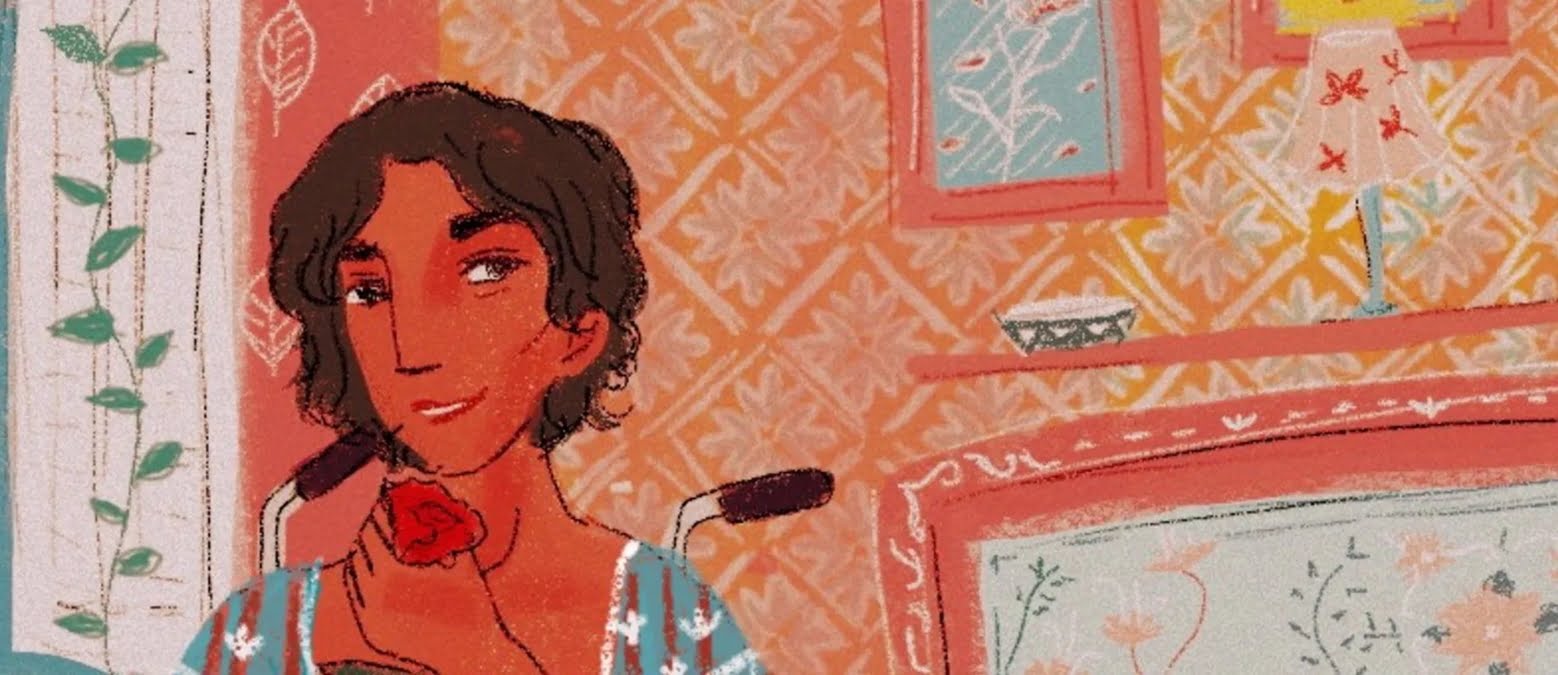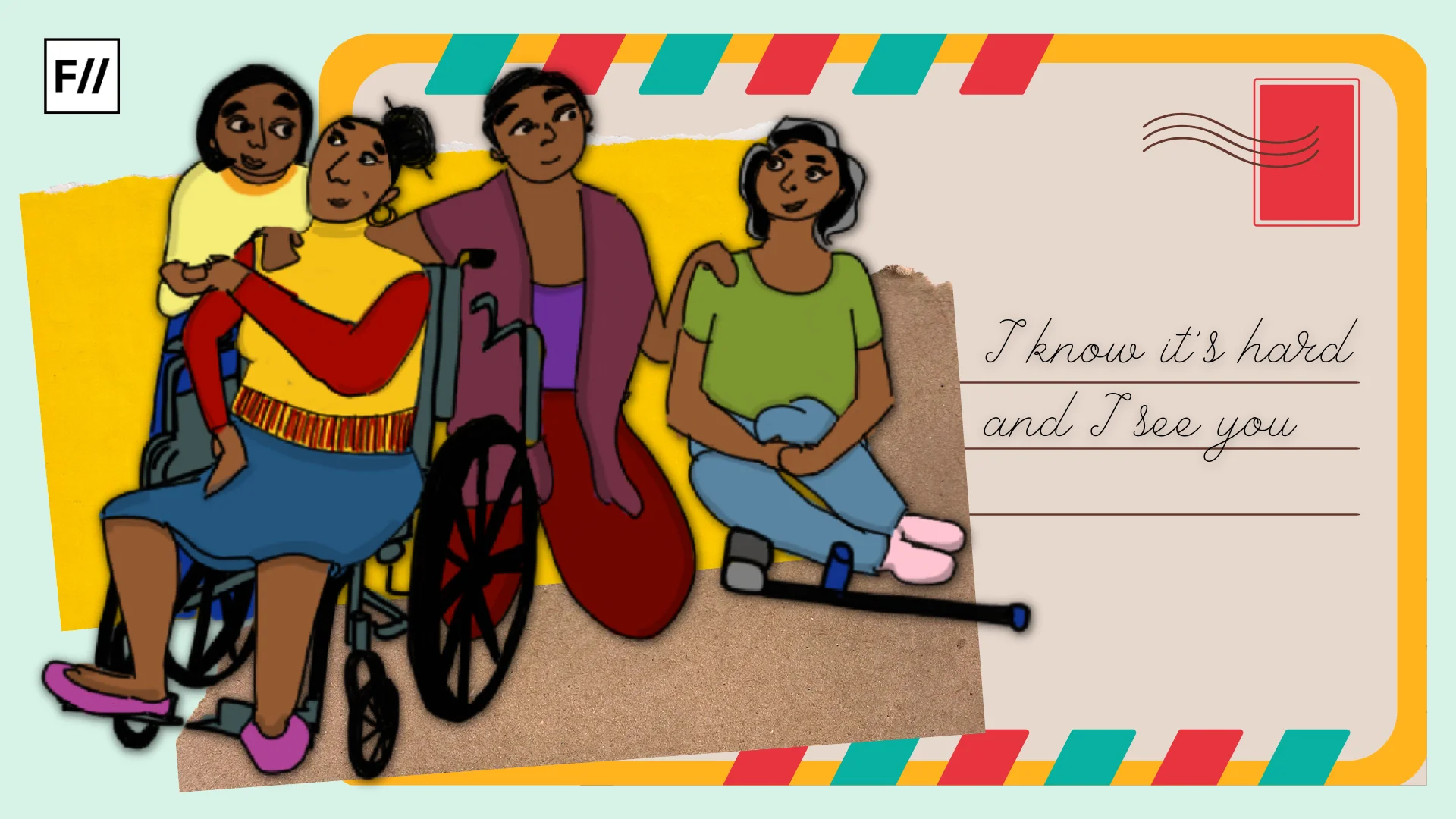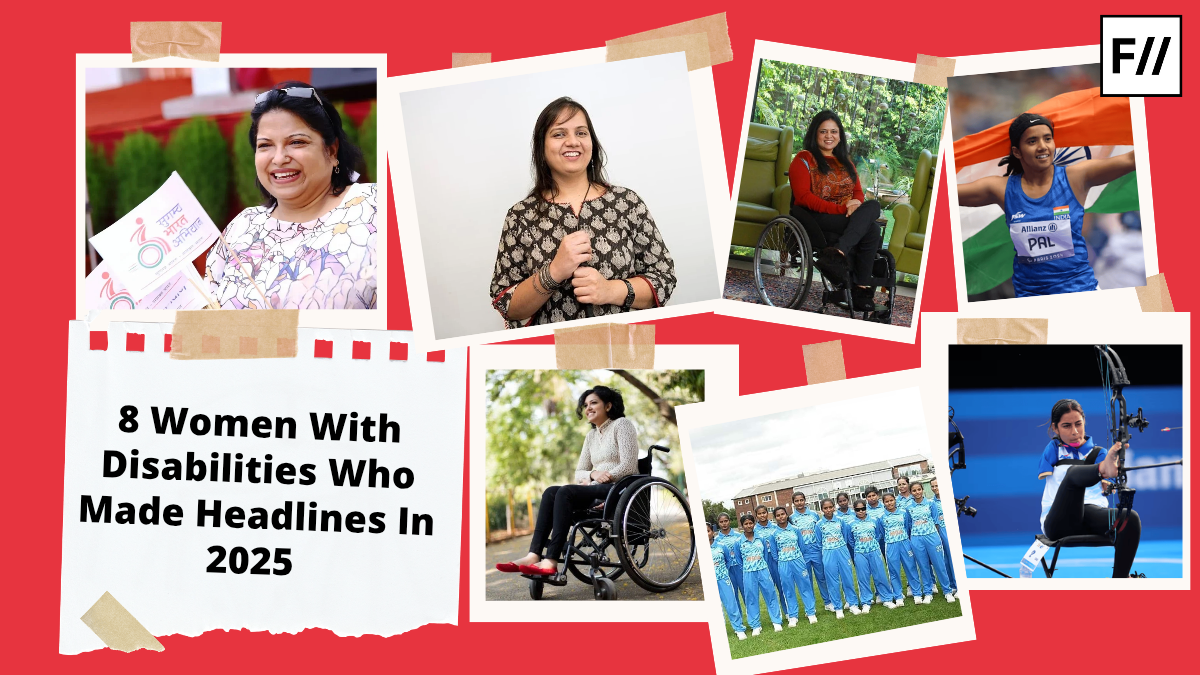As I wake up from a short nap in my bedroom, I look around me and examine the space that I am in. It is dark and quiet outside. All one can hear is the quiet and comforting sound of the crickets. As I collect my thoughts, I remember that I’m back in the room I grew up. This is by no means a happy, comforting experience for me, as opposed to many who find coming back home. This is where I have experienced, as a child, severe depression borne out of disability grief and self-loathing.
I had the habit of naming rooms in my house after my moods. The room where I grew up was called the “depression room”. The bathroom was called my “happy room” because it had memories of warm showers and soapy bubbles on many a sunlit afternoons. My living room was called the “trauma room” because of memories of a family confrontation that had taken place years ago.
One by one, I remembered everything, how 2020 played out, how we didn’t have a graduation ceremony to how I graduated in the blink of an eye and how I would do anything to live and breathe in my hostel room again. All of my feelings flood me: How I never got to say goodbye to the cat sitting on the ledge of my hostel room or that I didn’t get to bid farewell to my hostel mates who lived in different cities.
Also read: Taking Up Space: As A Disabled Woman In Academia
You might wonder: Should not I be happy because I’m home after all, right? Yes, Calcutta was home. The narrow lanes of Calcutta were warm, and small for an anxious person like me who experienced agoraphobia. It had many small roads which I could cross on my own and thus helped me gain a sense of agency as a young physically disabled woman. Honestly, I still cannot cross big roads with heavy traffic and you know what? I have come to make my peace with that too. Earlier, I would feel like I wouldn’t be able to survive in a big city because I couldn’t cross the intersection of big roads (I would often panic at this thought) but all I had to do was learn how to ask for help.
And so I did, I learned how to ask for help while crossing roads, I learned how to ask for help with complicated hooks and buttons of my inaccessible clothing, I learned how to ask for help climbing steep stairs. In the process, I learned how to be kinder to myself, to be there for myself, to “babysit” and look after myself on bad mental health days.
Meanwhile, Calcutta ceased to be home.
My Hostel Room: A Haven For Expressing My Disabled Self to The Fullest
As I now walk around my room at home, I begin to think about my hostel room. It isn’t mine anymore, but it once was. It wasn’t as big as my room at home, but it was more than enough for me. Growing up as a disabled child, I often craved a sense of self-efficacy and freedom. As I grew into a conflicted teenager, I would dream of having my own room and living alone in a great big city. I would often sing along to Taylor Swift’s lyric “Someday I’ll be living in a big ol’ city and all you’re ever gonna be is mean’’, referring to children at school who would most often alienate me from all activities because I was somehow, too “different’’ for them to wrap their heads around.
It is my opinion, that the only way privileged women from marginalised sections, with strict, helicopter parents can gain a sense of freedom is by moving out of our homes and either a) getting an education or b) getting married. While we are home, we need to pass many inaccessible “levels” of parental permission, spaces that are restrictive, patriarchal and ableist. We “need” to be protected. All the while, our male cis-gendered counterparts (be it siblings or friends) find it so much easier to simply “exist”! When you’re a disabled woman, structures of love, sex and sexuality are impossible and so, so complex, despite having turned an adult and graduated.
While we are home, we need to pass many inaccessible “levels” of parental permission, spaces that are restrictive, patriarchal and ableist. When you’re a disabled woman, structures of love, sex and sexuality are impossible and so, so complex, despite having turned an adult and graduated.
An example (might be controversial, but deal with it), while my male able-bodied counterpart can engage in the “hookup” culture, for me, when I return to my home city, I’m seen as something to be “protected”, I’m expected to be obedient and listen to my parents, and by any chance, if I change my appearance (I have blue hair and trust me, that was a riot in my house) even a bit, I’ll be questioned and taunted.
I remember when I was young, folks would tell me, “Don’t go to DU, girls there colour their hair and have nose rings. That’s..bad.’’ They would whisper. The first time I dyed my hair blonde, relatives would say, “You look like a typical DU wali! Delhi has spoiled you!’’. Somehow, changing my hair colour and piercing my nose was a sign of “impurity”. It changes my image from an ideal studious girl (and thus, an ideal bride) to a “rebel’’. For many of us who’ve had oppressive childhoods, changing our hair colour and\or appearance becomes a silent and subtle form of dissent against brahmanical patriarchy.
At my hostel, I was finally free to do whatever I wanted: My hostel walls reverberated with songs from queer artists. My room was an accessible disabled haven, where I found power in my identity as a disabled and queer woman. It made me who I am today. I rearranged the furniture so that I could easily move and dance around my room without knocking into things (thanks to my uneven balance). I always remembered the folks in the corridors who would pick me up, in case I fell. I always remembered their faces. Sharing intimate spaces with other women made me recognise and identify who I was, outside of my sheltered childhood. It taught me solidarity, cooperation, kindness and empathy. It taught me how to sit with my loneliness and not do anything to get rid of it, but to take comfort in it, breathe with it, sing with it.
My hostel room was an intimate space I shared with other women who made me recognise and identify who I was, outside of my sheltered childhood. It taught me solidarity, cooperation, kindness and empathy. It taught me how to sit with my loneliness and not do anything to get rid of it, but to take comfort in it, breathe with it, sing with it.
Also read: Taking Up Space: Disability, The Art Of Assertion & Setting Boundaries
Why Is Coming Home To Myself So Important?
So, coming to my point, I had to reclaim my room at home when I arrived here three months ago: I had to get fairy lights (fairy lights have strangely, always reminded me of coming home to myself; and not the physical space of the room). I had to get my space paintings from the storeroom above and decorate my bed table with head bands I wore in my childhood. This was my reality now, and I had to embrace it. Lastly I took out my childhood toys which gave me comfort: a tiny little dresser that was pink in colour and dolls that reminded me of happier times. Was it difficult moving back into the “depression room’’? Yes it most certainly was. But like everything, it had to be reclaimed and I had to make it my own.
All of my friends live in different cities and so audio and video calls are our only sense of communication. As we discuss details about our respective dysfunctional families, inside jokes and how our fathers don’t agree with our ideologies, we have formed a kind of a utopia of our own: A utopia of dissent and chosen families – a certain hope for the future.
‘Taking Up Space’ is a column where the author writes about her experiences of navigating so-called mainstream spaces as a disabled womxn. Not an attempt to preach or inspire, she attempts to have conversations on taking up space within her own reality, in conversations and physical spaces such as classrooms, seminars, grocery stores and by extension, in an ableist society rendering disabled individuals as persons with no agency of their own.
Featured Image Source: Upasana Agarwal for Point Of View/Medium
About the author(s)
Anusha Misra prefers to be called nu, identifies as a disabled, queer woman. They are a disability justice author, curator and editor. They are the founder and Editor-in-chief of Revival Disability Magazine, a magazine on Disability, Sexuality and Intersectional Ableism. They firmly believe that Intersectionality gives disabled women the emotional skin to survive in the world and that vulnerability should be celebrated. According to them, the revolution would be incomplete without disabled joy and dissent.




